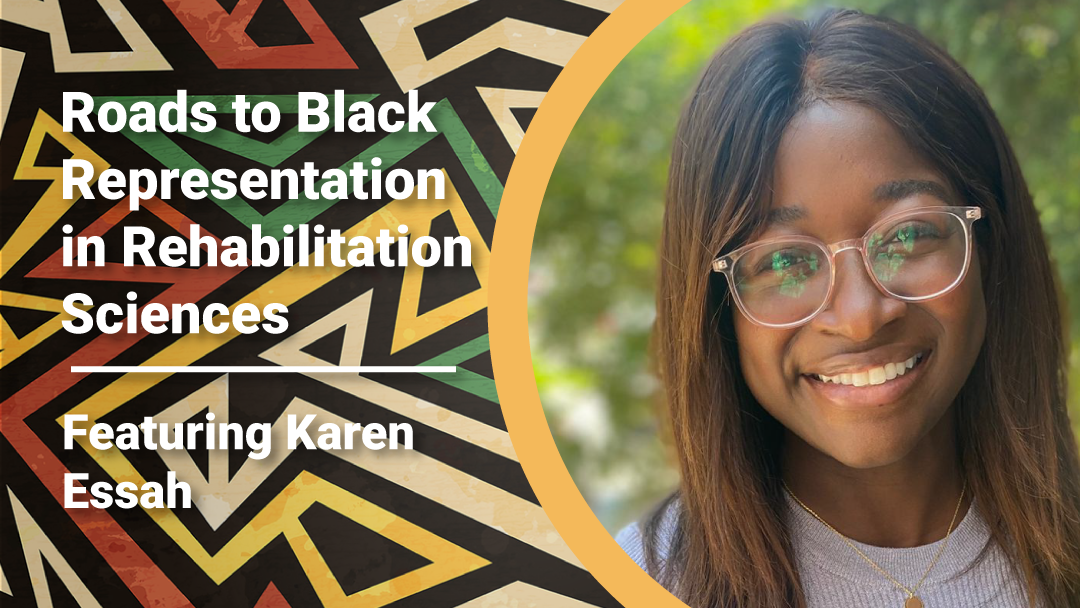Roads to Black representation in rehabilitation science – featuring Karen Essah

The Faculty of Health Sciences at McMaster University recognizes the historic and systemic barriers that Black students face in accessing postgraduate educational programs and opportunities. In response, the MSc Programs now include a Facilitated Black Admissions Program (FBAP), specifically designed for individuals who self-identify as Black.
To shed light on the critical importance and impact of this specialized admissions path, FBAP volunteer assessors have provided insights from their professional journeys and discussed the FBAP’s role in shaping the future of healthcare.
Among these assessors is Karen Essah, who works as a physiotherapist for the Respirology Unit at St. Michael’s Hospital. She is a McMaster alumna who graduated from the MSc Physiotherapy Program in 2018.
Can you share some key milestones in your career?
As a significant proportion of my patients are people with Cystic Fibrosis, a somewhat recent milestone I experienced was in 2022 when I was allowed the opportunity to attend the North American Cystic Fibrosis Conference in Philadelphia. This conference allowed me to learn from and work with other healthcare professionals who are striving to provide quality care for people with Cystic Fibrosis. Additionally, it was great to see that these healthcare professionals came from so many different backgrounds and experiences, thus providing unique perspectives to the conference.
Why is the FBAP stream important to you?
FBAP is an important program because it allows students to demonstrate their skills and competence while reducing the risk of exposure to inherent biases from other racial communities. Though these biases are often unintentional, they still pose the risk of harbouring an inequitable environment during the admissions process, thus posing barriers to fair admission of students with different but significant backgrounds. I believe its aftereffects also allow students of majority races to be exposed to more diversity, thus hopefully increasing communication and better understanding of racial minorities and their perceived struggles navigating educational and healthcare systems. This also allows future graduates to be more representative of our diverse Canadian communities.
How does the FBAP compare to the previous admissions process for Black applicants?
This is a pioneering change within the program itself by providing an opportunity for assessors to learn more about their approaches to assessing students and in turn gives Black potential students a safe and comfortable space to express themselves.
Why were you motivated to volunteer as an assessor for this stream?
I was motivated to volunteer as an assessor for this stream due to situations I have experienced personally as well as the experiences of friends, family, and peers. Though I have generally been lucky enough to have gone through fairly equitable processes when applying for various school or career opportunities, I know and work with many people who were not afforded this same right. I would like to be able to assist with making this process as safe and frictionless as possible for incoming students who are just getting started on the road to their future careers.
Want to learn more about the Faciliated Black Application Program for our physiotherapy program – see here.
Black History Month, News